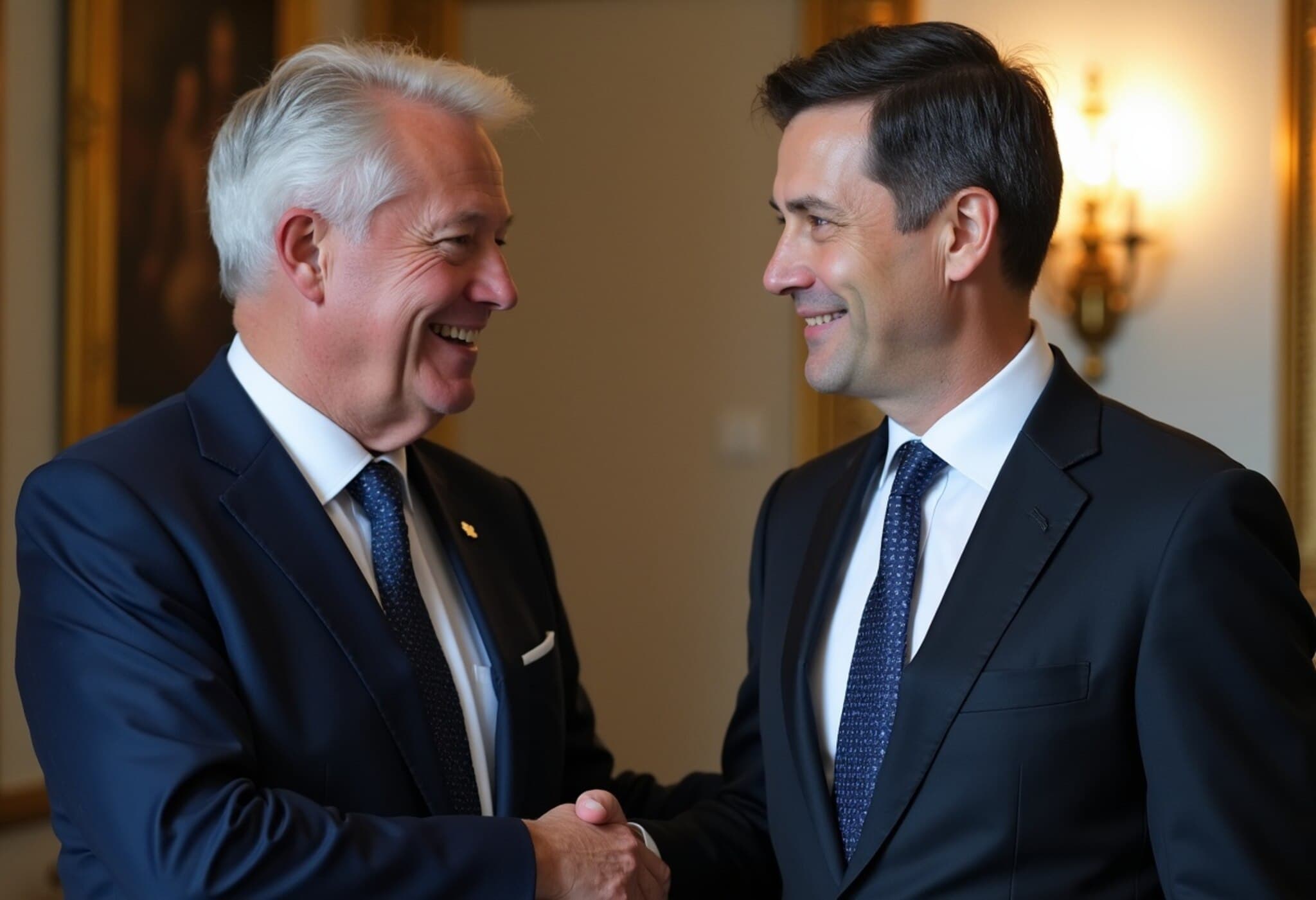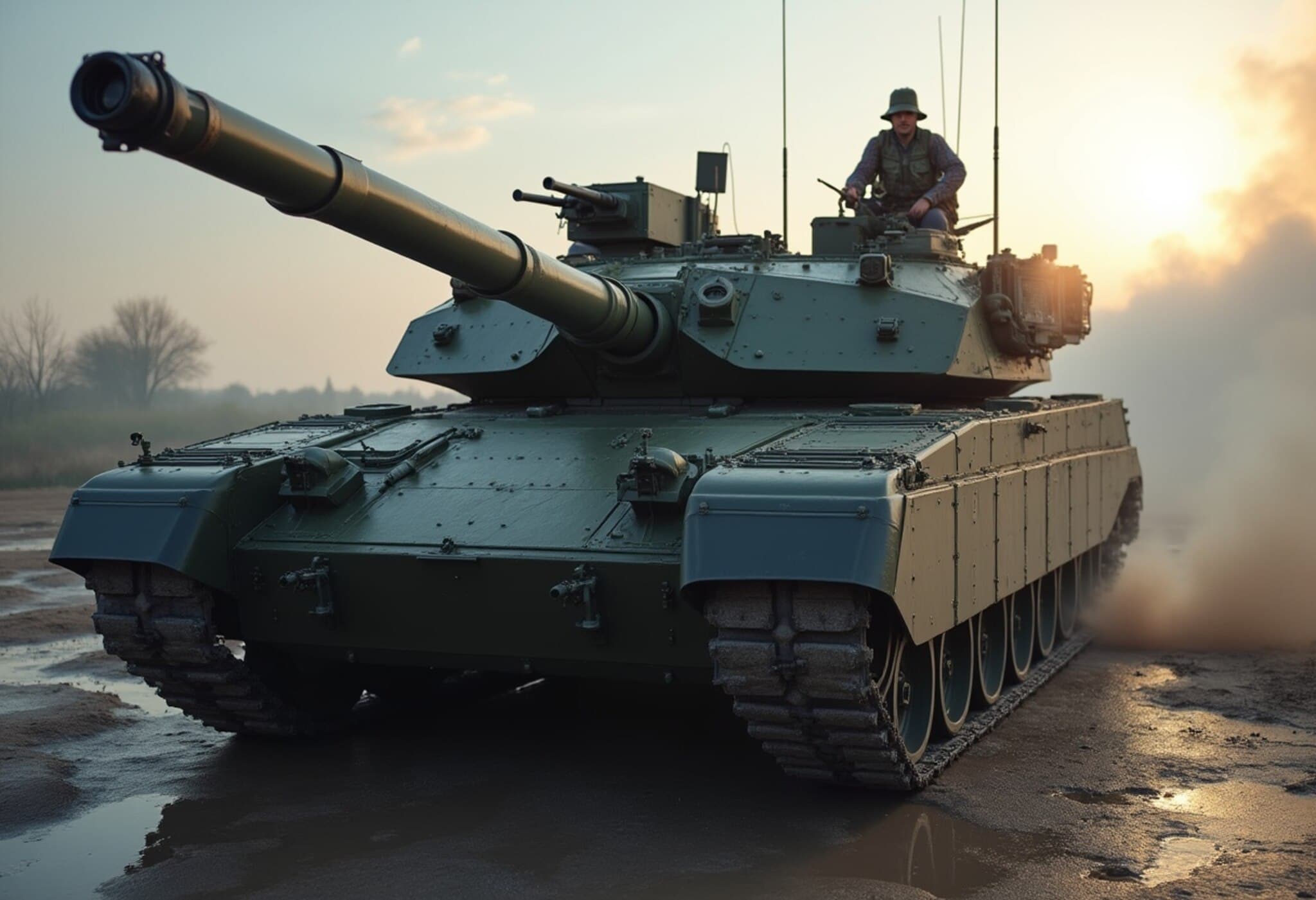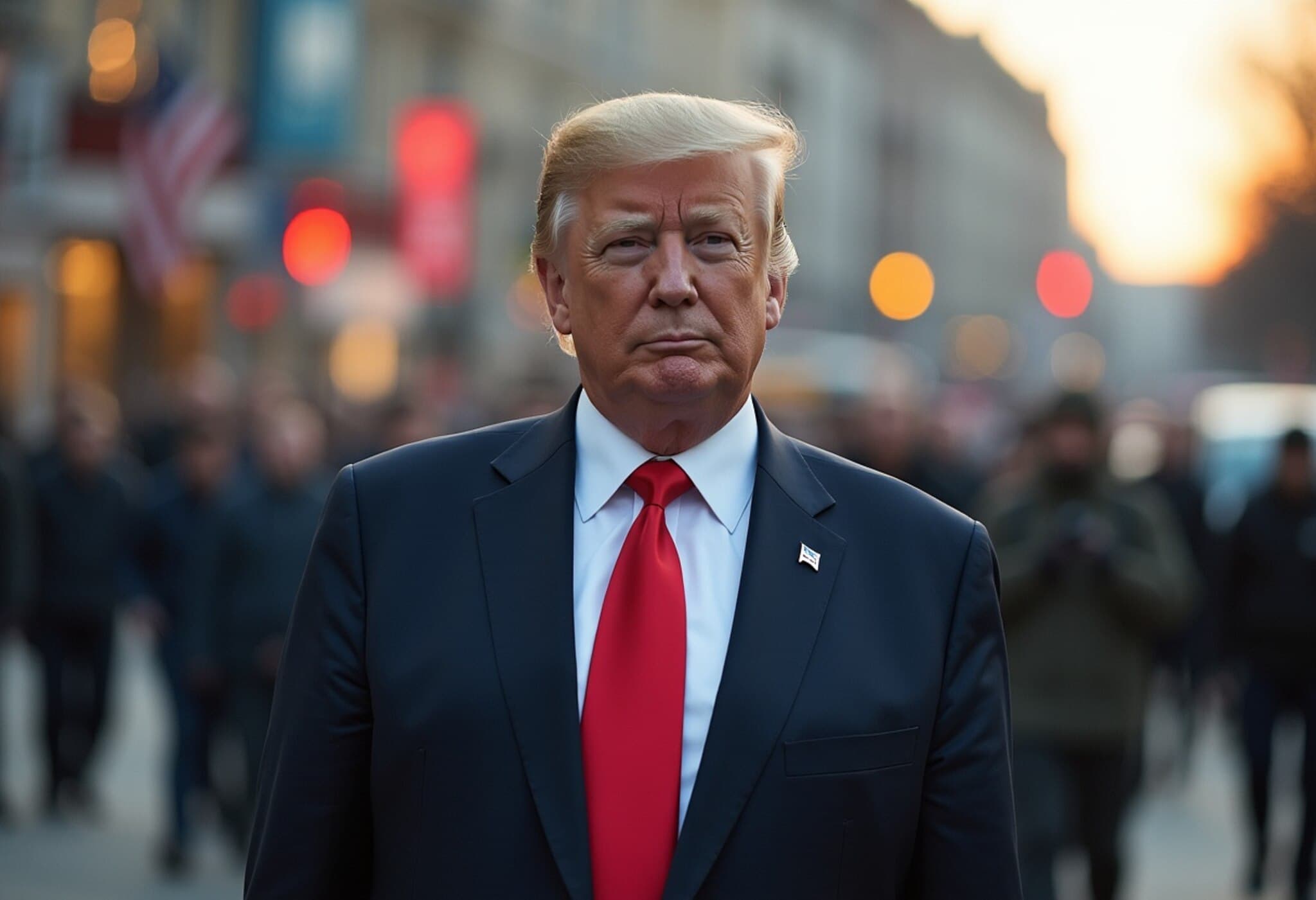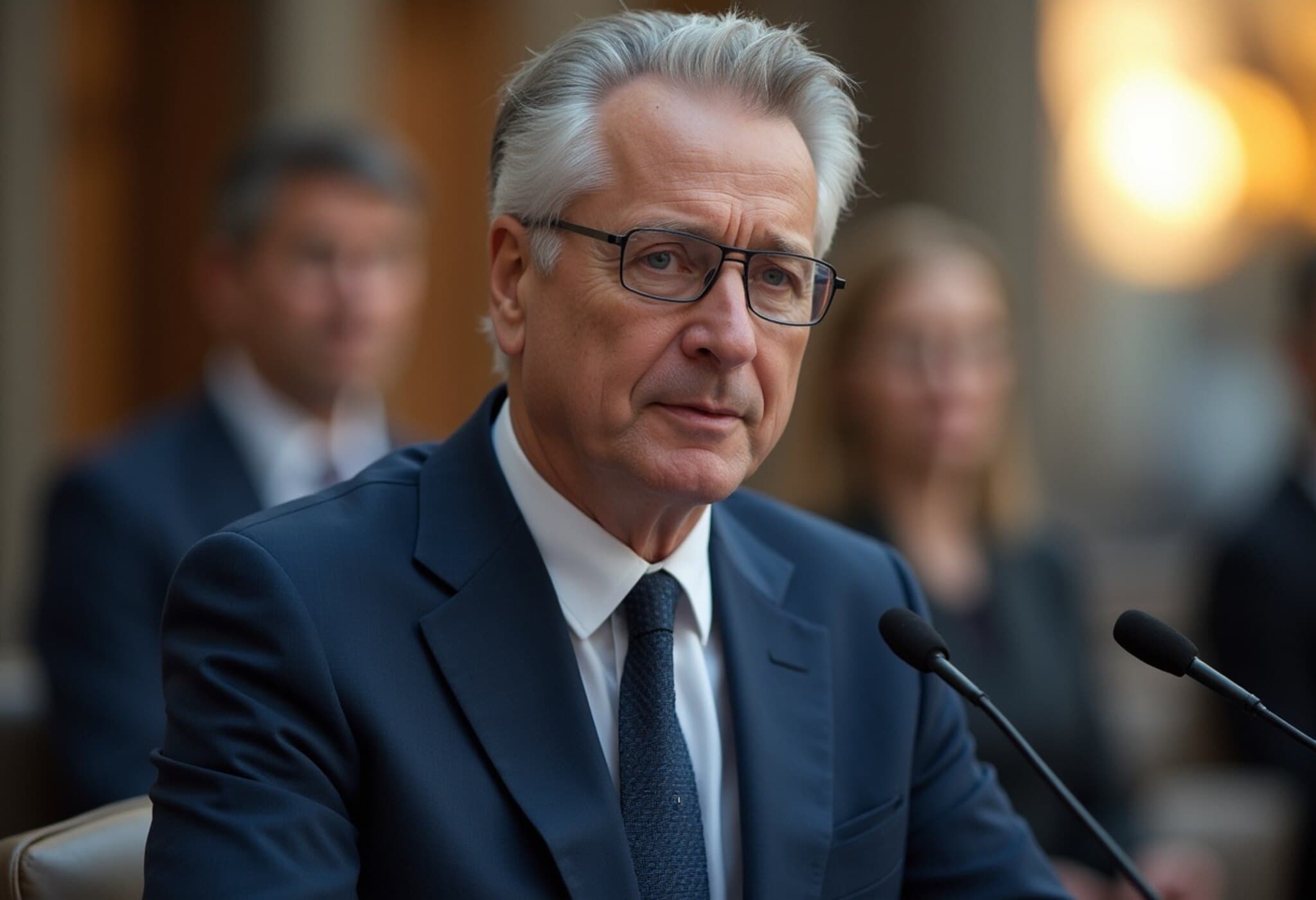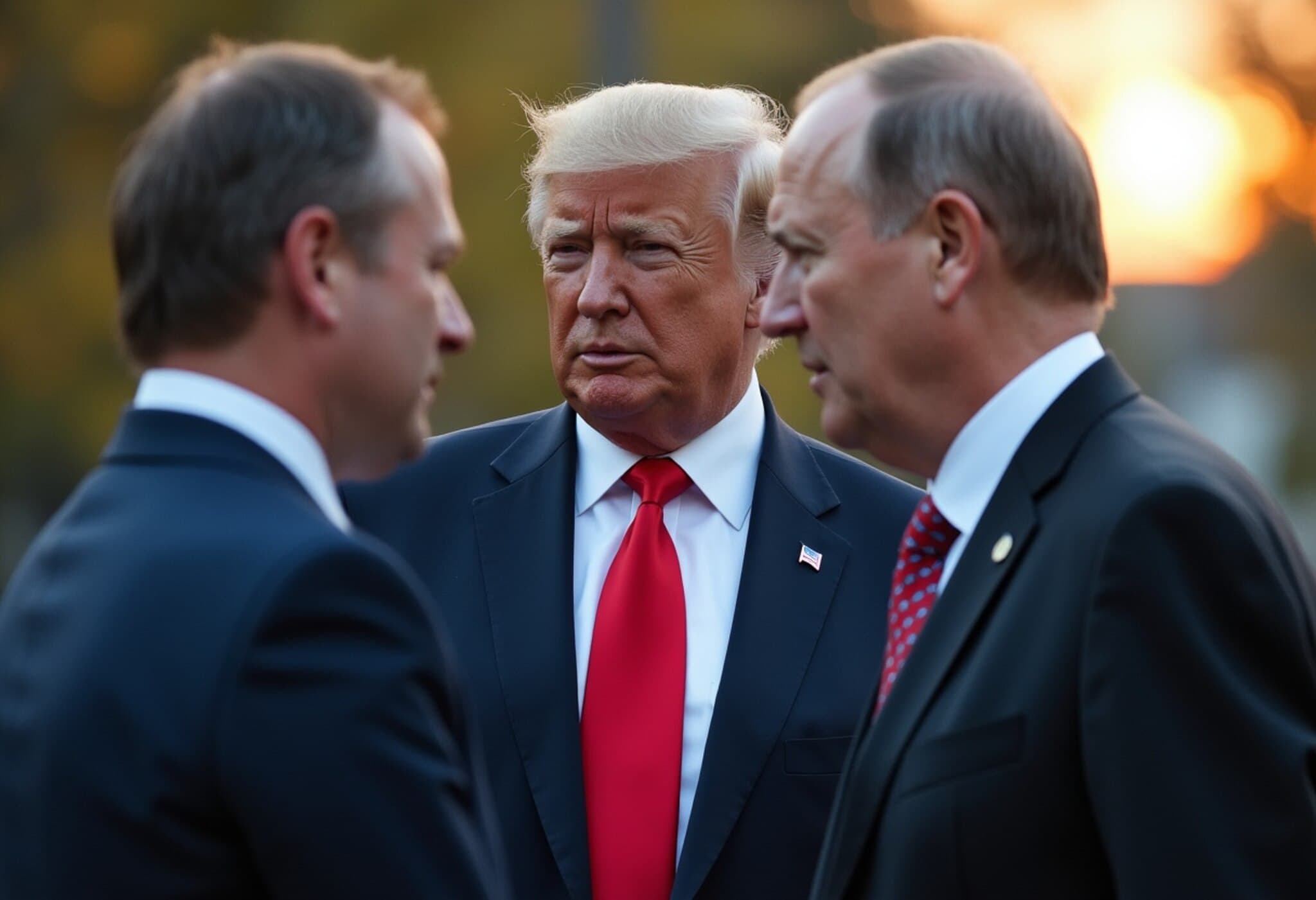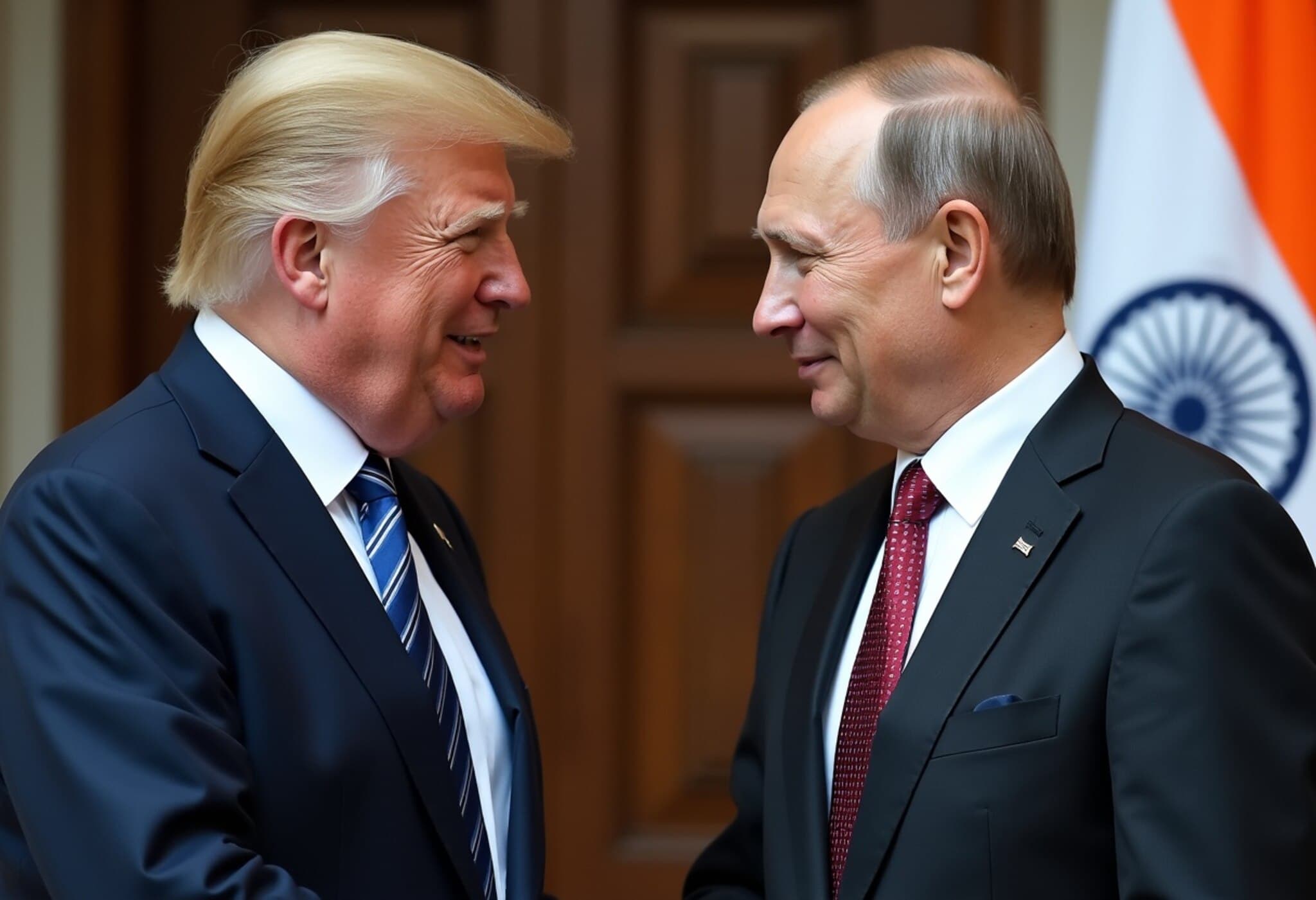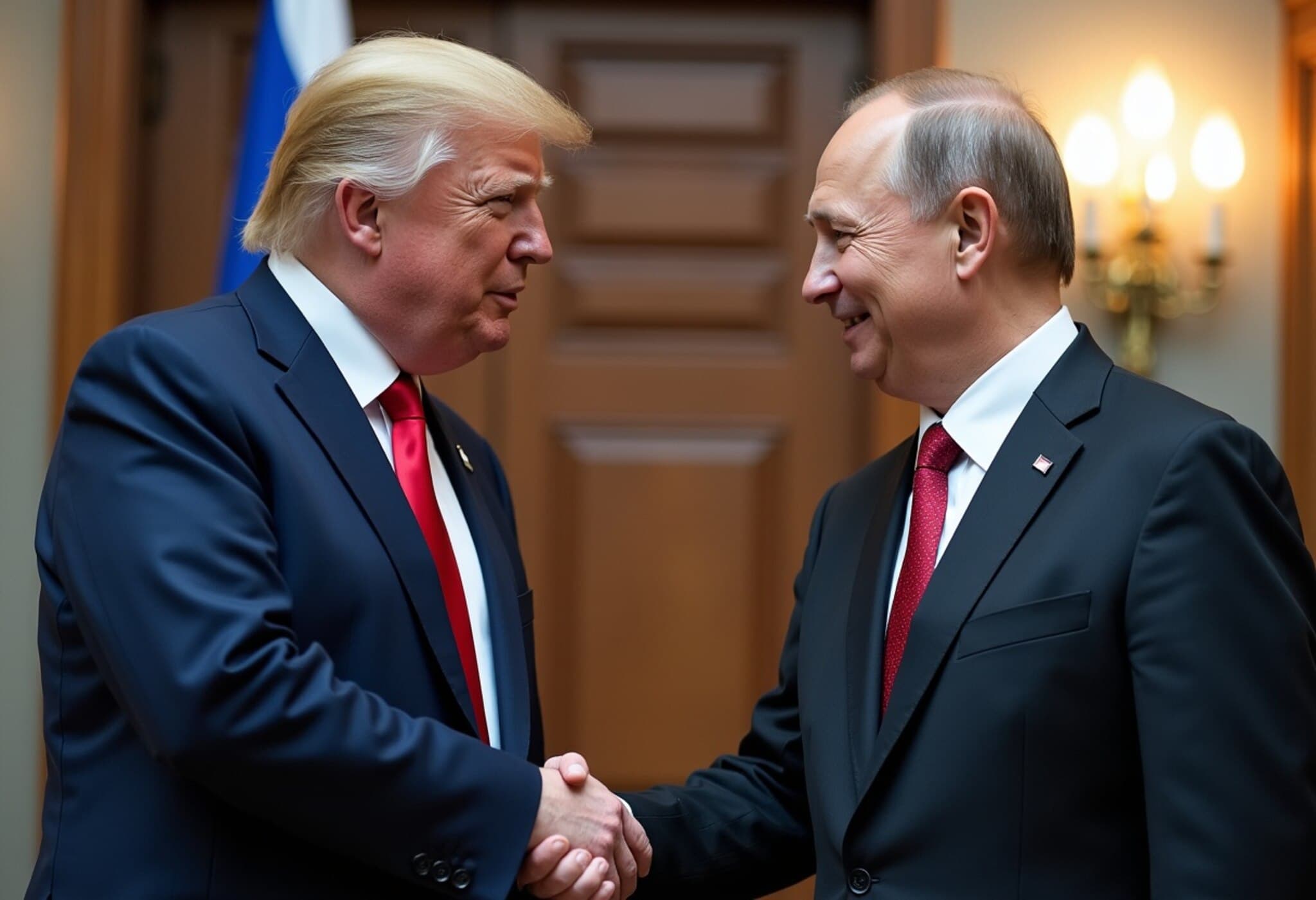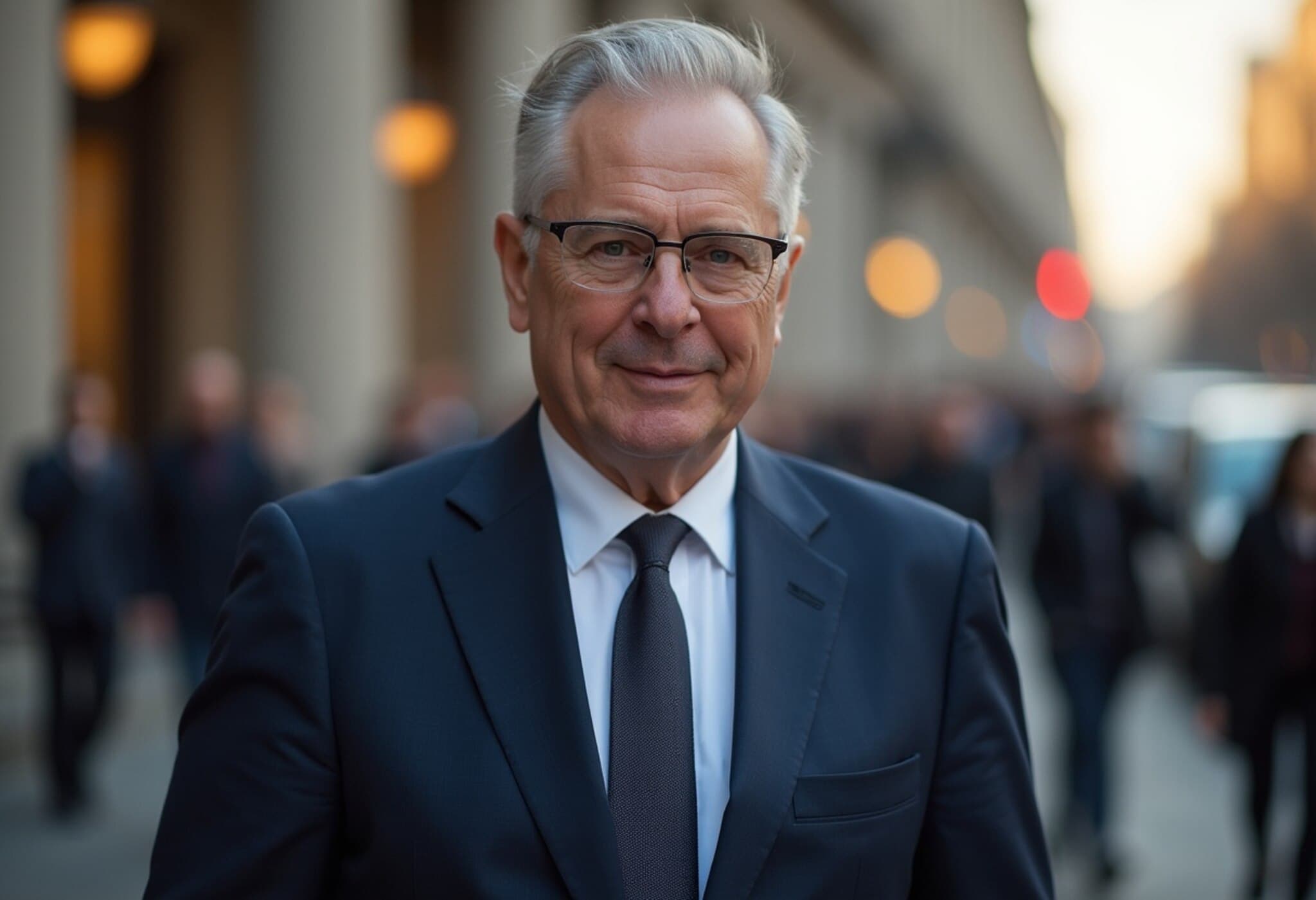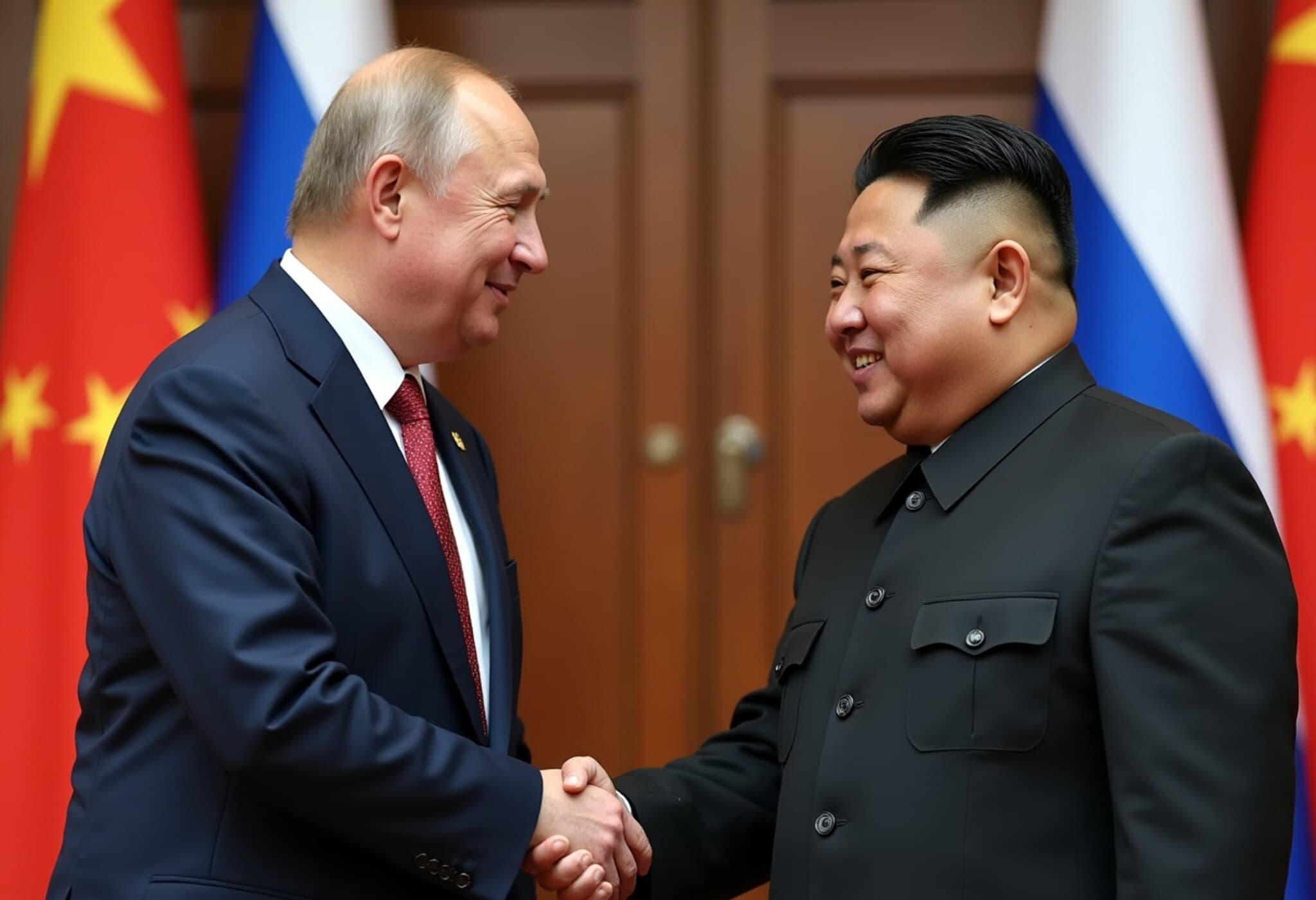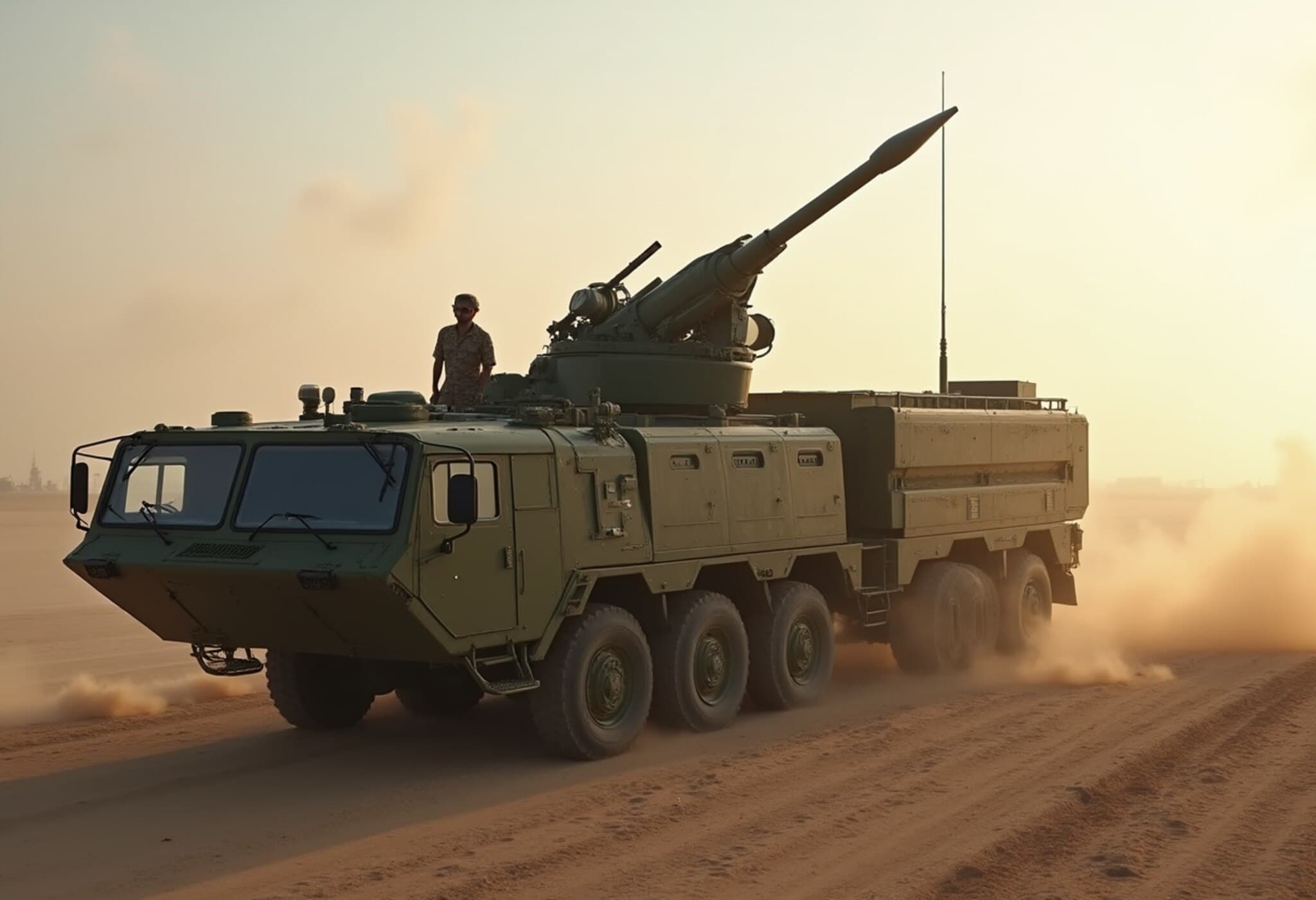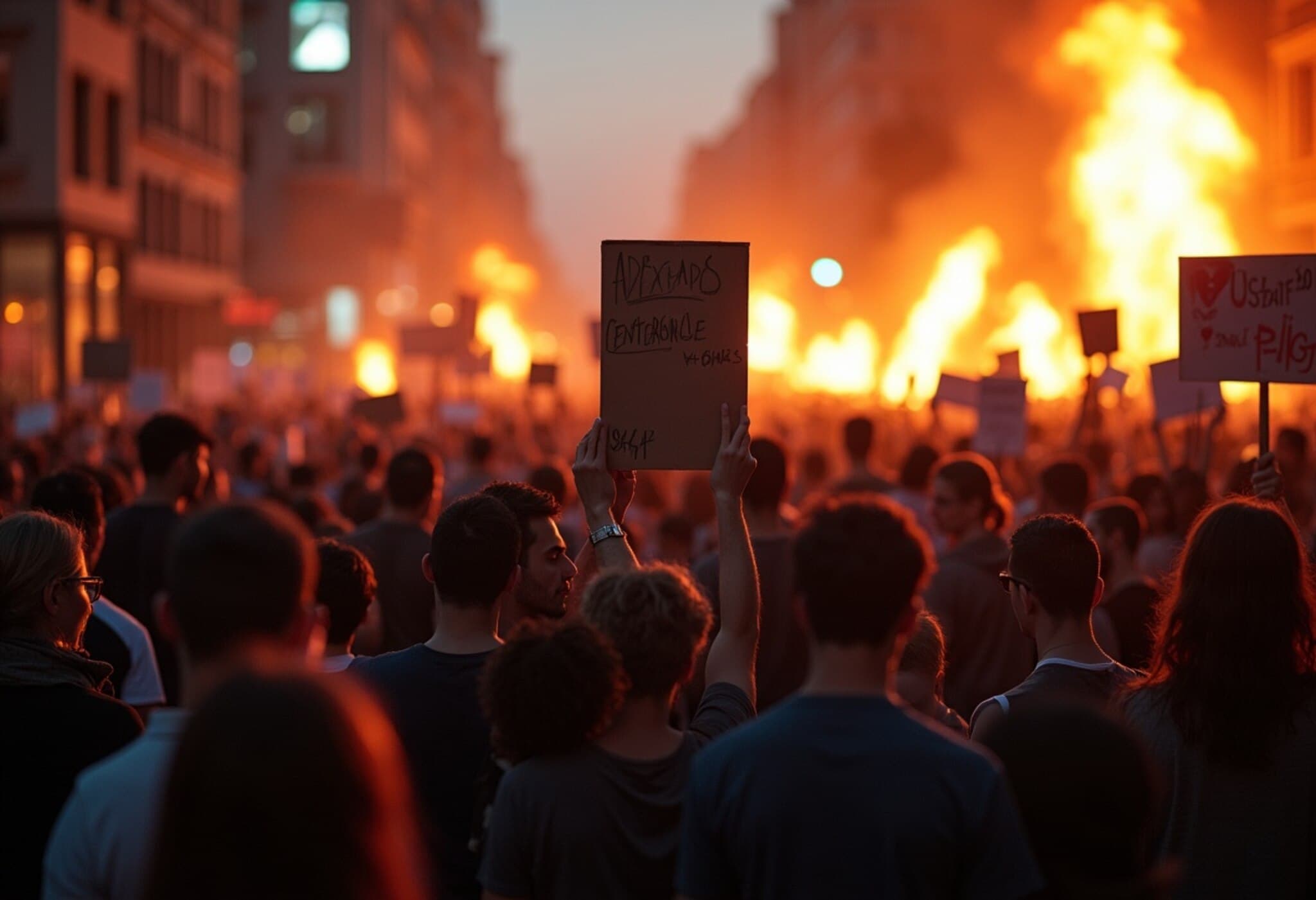US Vice President JD Vance and UK Foreign Secretary David Lammy Discuss Ukraine Security Ahead of High-Stakes US-Russia Summit
In a crucial diplomatic move, US Vice President JD Vance and UK Foreign Secretary David Lammy convened a strategic meeting with Ukrainian security officials, underscoring Western solidarity as the world braces for the upcoming summit between US President Donald Trump and Russian President Vladimir Putin in Alaska. This gathering, held at Chevening — the UK Foreign Secretary's official residence in Kent — brought together a diverse coalition of European national security advisers, highlighting the complexity and international stakes of the conflict in Ukraine.
Ironclad Support for Ukraine Amidst Complex Peace Talks
During the talks, Lammy reaffirmed the UK's unwavering commitment to Ukraine, emphasizing the pursuit of a just and lasting peace amid the ongoing conflict that has starkly reshaped European security dynamics. The meeting's timing was significant — coming days after Ukrainian President Volodymyr Zelenskyy publicly reaffirmed his nation's refusal to cede occupied territories, a position that presents a fundamental challenge to peace negotiations.
Lammy stated: “The UK's support for Ukraine remains ironclad as we continue working towards a just and lasting peace.” This reflects a concerted effort by Western allies to bolster Ukraine diplomatically and militarily in the face of sustained Russian aggression.
Broad International Representation Signals Unified Western Front
Alongside Vance and Lammy, influential figures such as Rustem Umerov, secretary of Ukraine’s National Security and Defence Council, and Andriy Yermak, head of Zelenskyy’s office, participated in the discussions. Their presence signals Ukraine's direct engagement and centrality in talks that shape the future of its sovereignty.
European Union, French, German, Italian, Finnish, and NATO representatives also attended, illustrating the extent to which Ukraine's fate remains a collective concern for transatlantic security and stability.
Trump-Putin Meeting: A Critical Juncture with Contentious Proposals
The Alaska meeting between Trump and Putin is being watched globally due to President Trump’s controversial suggestion that a territorial swap might be necessary to resolve the war—an idea that has alarmed many Western leaders and analysts alike. Trump remarked that there “will be some to the betterment of both,” referring to potential compromises over territories contested for over three and a half years, noting the heavy human toll on both sides.
This stance, however, sharply contrasts with the firm position of Ukraine and its allies who insist that any territorial concessions are unacceptable if forced by occupation.
European Leaders Push Back Against Territorial Compromises
In response to these proposals, leaders from Britain, France, Germany, Italy, Poland, Finland, and European Commission President Ursula von der Leyen issued a joint statement emphasizing that international borders must not be altered by force. They stressed Ukraine’s sovereignty and its right to determine its own future without external imposition.
The statement reinforced comprehensive Western support—diplomatic, military, and financial—for Ukraine to resist coercive efforts that might undermine its territorial integrity.
Zelenskyy’s Position: Unwavering and Principled
Ukrainian President Zelenskyy has navigated diplomatic waters carefully yet firmly. His latest message was unequivocal: “Ukrainians will not give their land to the occupier.” He reinforced the principle that Ukraine must be an active participant in any peace process, dismissing any deals made behind its back.
In an evening address, Zelenskyy called the UK-hosted talks constructive but reiterated that peace must be crafted collaboratively and not dictated by Moscow’s ambitions.
Contextual Insight: The Geopolitical and Legal Stakes
This series of high-level discussions encapsulates broader geopolitical tensions that resonate far beyond Eastern Europe. The US and UK, as leading democratic powers, face the challenge of balancing pragmatism in peace negotiations with upholding international law and supporting democratic sovereignty.
The question at the heart: Can peace be brokered without compromising fundamental principles such as the inviolability of borders and the right of nations to self-determination? Experience and international law suggest any solution excluding Ukraine’s consent risks perpetuating instability and undermining the rules-based order that has governed post-WWII Europe.
What Lies Ahead?
- The Alaska summit will test the durability of US-Russia diplomacy and the credibility of Western support for Ukraine.
- Ukraine’s insistence on retaining its territory sets a firm boundary for negotiations, potentially complicating Russian demands.
- Transatlantic unity remains critical to sustaining pressure and support, amid diverging approaches between leaders.
Editor's Note
As the world watches the Alaska summit with bated breath, this convergence of diplomacy reveals the intricate dance of power, principle, and pragmatism underpinning the quest for peace in Ukraine. The steadfastness of Ukraine’s position and the resolute backing from Western allies illuminate the deep complexities facing any resolution. Readers should consider not only the geopolitical chessboard but also the human dimension—millions impacted by these decisions.
The pivotal question remains: Will peace come at the cost of justice, or can diplomacy honor both? This evolving story demands close attention from policymakers, analysts, and citizens who care about the future of international order and human dignity.

